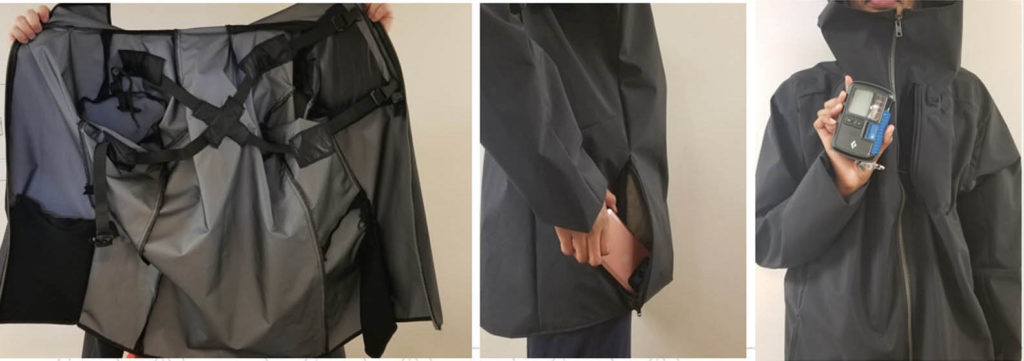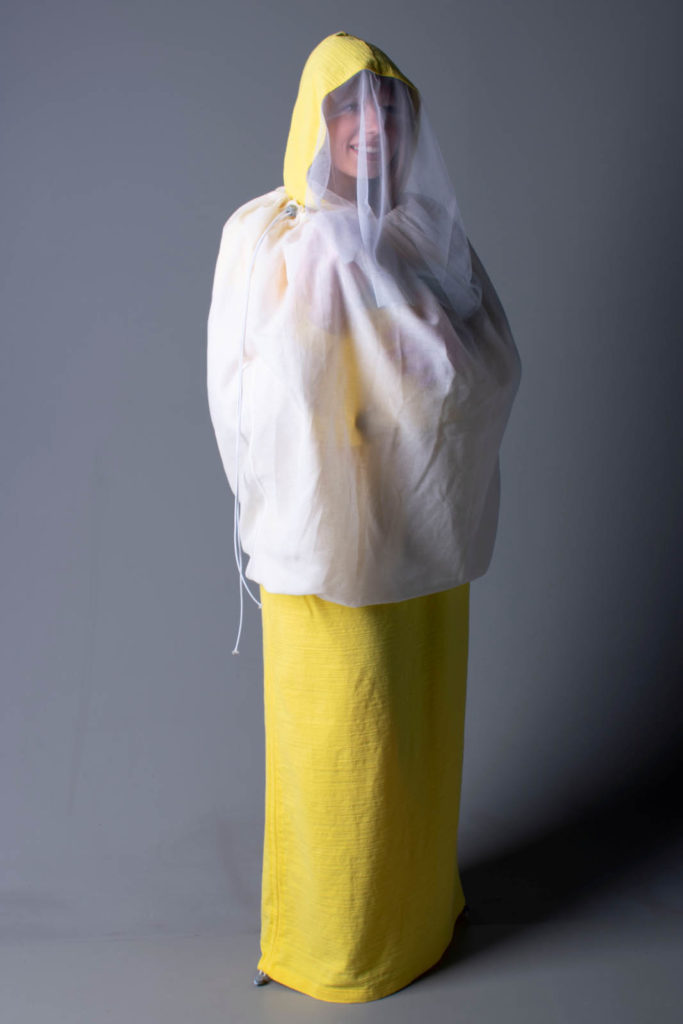
The Advanced Textile Products and Narrow Fabrics Institute, divisions of IFAI, recently selected recipients of the 2019 Advanced Textiles Student Design Competition. University of Minnesota–Twin Cities students, Ian Harris, Warda Moosa and Mary Xiong took first place honors for their project “Emergency Avalanche Transceiver Garment.”
This project was developed for skiers and snowboarders who may be at risk when venturing into back country areas. It’s meant to provide an all-in-one solution as an avalanche beacon harness and jacket, used in an emergency to locate and rescue someone caught in an avalanche.
All those in a group, who are venturing into high-risk areas, should wear the device, initially set to ‘send’ mode which emits a signal. If an avalanche occurs, those in the party who are safe are to set their beacon to ‘search’ mode which will pick up the signals from the beacon’s of those in danger and help locate the victims.
The majority of avalanche victims are found downhill with their face facing the ground, and the most common cause of death is a lack of oxygen, so finding a buried victim in 15 minutes or less is critical. Because electronic devices like cell phones can interfere with the signal of the beacon, and gear such as a shovel can partially block the signal or create spikes, this device was created to overcome these issues.
The inside of the jacket incorporates an integrated harness system to keep the beacon pocket and jacket secure on the body with adjustable elastic straps and plastic buckle clips. Fabrics used included heavy Nylon ripstop with a Gore-Tex membrane, lightweight Nylon ripstop, knit jersey, cell signal blocking Faraday Defense material and clear plastic to make the cell signal pocket waterproof.
Patagonia Inc. was the sponsor for this project brief and provided materials to aid in research testing and prototyping. The team won a prize package worth more than $6,000, which included a trip to IFAI Expo 2019 to present their project to the industry.
Second place was awarded to Marina Lee, Farah Alfayruz and Fatimah Alfayruz, from the University of Wisconsin–Stout for their project “Hamayh Suit.” The garment, which was designed with safety, comfort/ease and functionality in mind, was developed for gas filling attendants and gas pipeline workers who encounter hazardous and harsh work environments.

Third place went to students Jessalyn Bennett, Susanna Bordelon and Cecily Ripley, also from the University of Wisconsin–Stout, for their project “Anti-Malaria Dress.” This project is a garment that incorporates a unique design, unlike other current malaria protection products, and includes features such as portability, non-chemical mosquito repellency and accessibility for mothers to breastfeed.

Association representatives announced the winners at IFAI Expo 2019, held Oct. 1-4 in Orlando, Fla. The Advanced Textile Products Student Design Challenge is an annual contest established to encourage college and university students of design, textiles engineering, and allied curricula to solve safety and protection problems using technical textiles and narrow fabrics in functional designs.
 TEXTILES.ORG
TEXTILES.ORG


